Affiliated Faculty

Ayana Allen-Handy
Associate Professor
ayana.m.allen@drexel.edu
Drexel University | School of Education
Ayana Allen-Handy, PhD is an Associate Professor of Urban Education in the Department of Policy, Organization, and Leadership at Drexel University. She is also the Founder/Director of the Justice-Oriented Youth Education Lab (The JOY Lab). Grounded in critical race and intersectional theoretical framings, her work is dedicated to justice-oriented urban education and is built upon debunking and (re)framing pejorative narratives of urban students, schools, and communities. Her work strives to (re)imagine urban from a place of decline to a place of possibilities. Therefore, her research employs asset-based critical perspectives which recognize the resources and assets that individuals and communities possess that derive from their lived experiences, and the role that power and privilege have played in maintaining inequitable educational opportunities. Particularly, her work centers the strengths that illuminate the community cultural wealth and funds of knowledge that are embedded in historically marginalized places and spaces and amongst the mosaic of diverse people groups therein. She seeks to highlight the human, cultural, and social capital that are often unrecognized and unacknowledged by the status quo. Her work does not focus on problems and issues in urban education alone, but critical solutions and participatory approaches in an effort to espouse equity, agency, and critical capacity building. For example, her work strives to support the capacity of students, teachers, schools, and communities to create, implement, and sustain their own solutions to issues that directly impact them through critical Youth and Community-led Participatory Action Research.
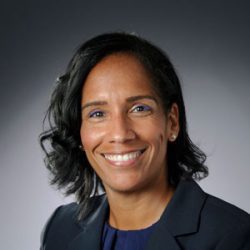
Tosha Arriola
Assistant Head of Upper School
Providence Day School | Faculty Website
As a transformational coach, Tosha Arriola supports educators by providing the strategies, tools, and resources that they need to move to the “next level of success” in her role as CEO of CustomEx Consulting. She is currently an administrator at an independent school in addition to supporting leaders and schools through her coaching programs. She was previously a professor and the Director of the Teaching Fellows Program at Queens University of Charlotte. This is her 28th year as an educator, and she’s taught and led from the preschool level all the way up to college and everything in between! Tosha is most passionate about providing support for people who have been promoted to leadership roles, but have not been provided with the training or guidance that they need to become confident and effective leaders in their schools.
Arriola taught for fifteen years in the Charlotte Mecklenburg School district and also served as a Peace Corps volunteer in Costa Rica early in her career. She received her B.A. in Spanish and Education from SUNY Cortland and her M. Ed. in Literacy from Queens University. She is finishing her degree in Organization Development with a certificate in Executive Coaching. Tosha has a passion for diversity, community engagement, and service learning.
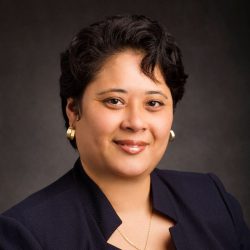
Adrienne D. Dixson
Associate Professor
addixson@illinois.edu
University of Illinois at Urbana-Champaign |
Dr. Adrienne D. Dixson attended Southern University from 1985-1989 where she was a flautist in the Southern University Jazz Ensemble and a Jazz Studies Major in the Alvin Batiste Jazz Institute. In 1990, she earned a B.A. in Music Theory and Composition from the Dana School of Music at Youngstown State University in Ohio, and an M.A. in Educational Studies at the University of Michigan-Ann Arbor. She earned her Ph.D. in Multicultural Education at the University of Wisconsin-Madison. Dr. Dixson currently serves as an Associate Professor of Critical Race Theory and Education at the University of Illinois at Urbana-Champaign. Her scholarship examines the intersectionality of race, class and gender in urban educational contexts, with a particular interest in how these issues impact educational equity for students and people of color in the urban south. Her work is widely published in academic journals and edited books. Her most recent books include Critical Race Theory and Education: All God’s Children Got a Song, Handbook of Critical Race Theory and Education, Resegregation of schools: Education and race in the 21st Century (Routledge) and upcoming Researching race in education: Policy, Practice and Qualitative Research (IAP Publishing).
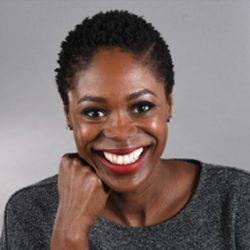
Abiola Farinde-Wu
Assistant Professor
abiola.farinde@umb.edu
University of Massachusetts Boston | Department of Leadership in Education
Abiola Farinde-Wu is an assistant professor of urban education and the graduate program director for the Urban Education, Leadership, and Policy Studies doctoral program in the Department of Leadership in Education at the University of Massachusetts Boston. In her previous position, she was a visiting assistant professor in the Center for Urban Education at the University of Pittsburgh.
Farinde-Wu’s teaching and service focus on preparing urban pre-service and in-service teachers for diverse student populations. Her research focuses on equitable educational opportunities for students of color. More specifically, she is interested in research questions lying at the nexus of the school experiences of Black female students and their educational and life outcomes.
Highlighting how racial, social, and cultural issues impact the educational opportunities and treatment of Black women and girls, she draws from critical theories to interrogate policies, structures, and practices that influence the recruitment, matriculation, and retention of this particular group in urban schools and contexts.
Her research interests are the educational experiences and outcomes of Black women and girls, diversifying the U.S. teacher workforce, and urban teacher education. She has authored and co-authored numerous studies published in journals, such as the Urban Review, Teachers College Record, Urban Education, and Teaching and Teacher Education. In addition, she is the co-editor of Black Female Teachers: Diversifying the United States’ Teacher Workforce (Emerald, 2017).
Her professional activities include serving as an assistant editor for Journal of Teacher Education, an editorial board member of American Educational Research Journal (AERJ), and an affiliated faculty member in The Urban Education Collaborative.
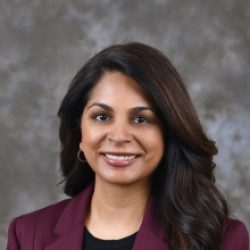
Sejal Parikh Foxx
Professor
sbparikh@charlotte.edu
UNC Charlotte | Department of Counseling
Dr. Foxx is a Professor and Counseling Department Chair. She is also the Director of the Urban School Counseling Collaborative. She has experience as an elementary and high school counselor. She is co-author of School Counseling in the 21st Century, 6th ed. In 2015, she received the Counselor Educator of the Year Award from the North Carolina School Counselors Association. She teaches both doctoral and master’s level courses and her special areas of interest are school counseling, multicultural and social justice, urban education, and creating equity and access to college and career readiness. She has been successful working with interdisciplinary teams to obtain over $2 million dollars in grant funding from the Department of Education and National Science Foundation.

Kareema J. Gray
Assistant Professor
kgray@jcsu.edu
Johnson C. Smith University | School of Social Work
Dr. Gray is an Assistant Professor of Social Work in the School of Social Work at Johnson C. Smith University in Charlotte, North Carolina. She received her Ph.D. in social work from The University of Georgia. Dr. Gray has worked as a medical social worker, an adoption counselor, and as an in-home family therapist. Her extensive practice experience has focused on family preservation, crisis management, adolescent residential treatment, and adoption family dynamics. Dr. Gray’s research interests includes projects that examine the effectiveness of community initiatives to alleviate poverty, international disaster case management/disaster response, and a variety of social justice and social advocacy issues. She currently serves as an advisor on community boards in Charlotte, N.C., and Rock Hill, S.C., to address community poverty and adolescent education issues.
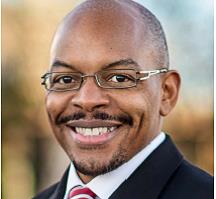
Stephen Hancock
Shirley T. Frye Distinguished Professor of Urban Teacher Education
sdhancock@ncat.edu
North Carolina A&T State University | College of Education
Dr. Hancock is the Shirley T. Frye Distinguished Professor of Urban Teacher Education at North Carolina A&T State University. Dr. Hancock serves as an instructor, researcher, and leader. He is the Director of the International Conference on Urban Education (ICUE), and leads and supports both university and community boards, committees, and task forces.
Dr. Hancock’s primary research interest is socio-cultural perspectives in urban elementary school context, which include foci on the effective teaching for diverse students, examining whiteness in elementary classrooms, and emerging research on curriculum to include both curriculum supremacy and curriculum trauma. In addition, his research interest focuses on cultural anthropological experiences in racial and community context. His research methodologies are based on qualitative approaches, which include autoethnography, ethnography, action research, and narrative. He is also interested in research that employs mixed method analysis. He has edited three books and published in top journals including the Harvard Education Review, Reading Psychology, Teachers College Record, and Urban Education.
Dr. Hancock has developed and taught courses on multicultural, diversity, equity & urban education, curriculum integration & theory, teacher leadership, teacher research methodology, child development, and reading. He teaches both undergraduate and graduate courses. He has also served on numerous master’s research committees and doctoral dissertation committees. He has served as an international invited lecturer in Germany, England, and Ireland.
Dr. Hancock is active in several professional organizations including the American Educational Research Association, National Association of Multicultural Education, Comparative & International Education Society, Society of Children’s Books Writers and Illustrators, and National Association for the Education of Young Children. As a community leader, Dr. Hancock has supported many local and regional elementary schools and community organizations. He has served as an international delegate to China, Germany, Singapore, Malaysia, and Mexico.
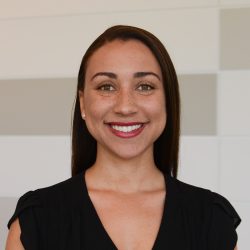
Brittany Hunt
Assistant Professor
bdhunt@vt.edu
| Virginia Tech
Brittany Hunt is a member of the Lumbee Tribe. She received her Ph.D. in Curriculum and Instruction at the University of North Carolina at Charlotte. Brittany received her Bachelor of Arts from Duke University and a Master of Social Work from UNC-Chapel Hill. She developed and operated the American Indian Urban Education Division at the Urban Education Collaborative. Her research interests include the experiences of American Indian students in education, but more specifically how the K-12 system disenfranchises Native history in the classroom and those effects on American consciousness and Native cultural identity.
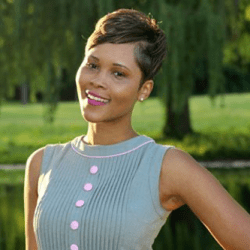
Lateefah Id-Deen
Assistant Professor
liddeen@kennesaw.edu
Kennesaw State University |
Dr. Lateefah Id-Deen is an Assistant Professor of Mathematics Education in the Department of Elementary & Early Childhood Education at the Kennesaw State University. She earned her doctorate in Curriculum, Instruction, and Teacher Education at Michigan State University, with foci in Mathematics Education and Urban Education. Her research examines marginalized students’ perspectives on their experiences in mathematics classrooms, and ways to support educators in hearing and developing practice in relation to students’ expressed interests. Further, she investigates instructional practices that promote student-teacher relationships, affirm mathematics identities and cultivate belongingness to support students’ learning experiences in mathematics classrooms. Her research and teaching reflect her passion for creating equitable learning environments for historically marginalized students in mathematics classrooms.
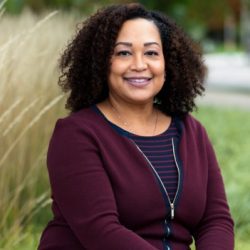
Tambra O. Jackson
Dean, Professor
tambjack@iupui.edu
Indiana University–Purdue University Indianapolis | School of Education
Tambra Jackson has been a professional educator for over 24 years. Prior to joining the academy, she was an elementary teacher and taught first, second, and third grades. As a teacher educator, she draws upon her own classroom teaching experiences focusing on the complexities of teaching diverse learners and attending to social justice issues pertaining to the marginalization of children in U.S. schools.
Tambra Jackson considers herself a scholar-activist and is committed to social justice issues pertaining to the historical and contemporary oppression, miseducation, and liberation of children of Color in U.S. schools. Her teaching, scholarship and service is a means of activism. She explicitly applies her knowledge and understanding of her field to interrupt institutional inequity and promote social justice in education.
Her scholarly agenda coheres around equity methodologies aimed at improving schooling outcomes for culturally and linguistically diverse students through teacher development and learning from the teacher identities and praxis of Black women educators and faculty. She designs research projects and situate her research, teaching, and service within spaces that acknowledge the perspectives and voices of historically oppressed and marginalized populations.
Her most recent research projects the development of culturally relevant/sustaining practices with preservice and practicing teachers of Color and the teacher identities and praxis of Black mother educators.
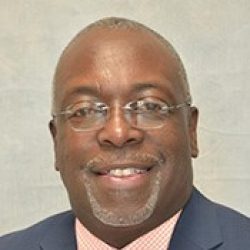
Joshua Kirven
Associate Professor
kirvenjo@winthrop.edu
Winthrop University | Department of Social Work
Dr. Joshua Kirven is an associate professor in the Department of Social Work at Winthrop University and Part-Time Instructor at North Carolina A&T State University in Greensboro, NC. He is a research-practitioner with over twenty years of experience as an educator-practitioner. Joshua’s research areas are fatherhood engagement and impact, neighborhood adversity and safety, prosocial youth development and sports culture influence and academic achievement. He has an array of practice experience with solution-oriented, evidence-based interventions and macro programming across communities and public-private sectors in the area of socially conscious capitalism. He is a Fulbright Scholar and graduate of Hampton University, University of South Carolina and The Ohio State University, respectively.
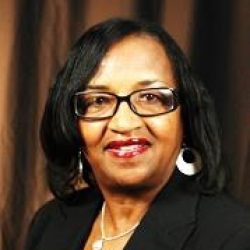
Patricia J. Larke
Professor Emerita
Texas A&M University | Department of Teaching, Learning and Culture
Dr. Patricia J. Larke is a professor emerita at Texas A&M University in the Department of Teaching, Learning, and Culture (TLAC) and the 2014-2016 Teacher Education Fellow. She is currently serving as a Scholar in Residence at University of North Carolina, Charlotte in its Urban Education Center. Dr. Larke has been a scholar in the field of Multicultural Education for over 25 years and has over 100 publications and has made over 400 conference presentations. Her research interests include: Effective Multicultural Teachers, Academic Achievement of Girls of Color, Integrating Multiculturalism in the Curriculum and Diversity in Driver Education. She was a 2005 Fulbright Scholar to China. She was the recipient of National Association of Multicultural Education’s (NAME) 2004 Multicultural Educator Award. She served as President of Texas NAME Chapter and received the 2010 Legend Award. She received TLAC’s Award of Excellence (2015) and Climate and Diversity Award (2014).
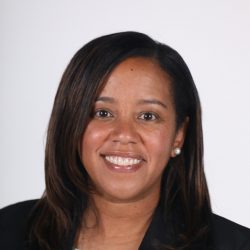
Sonyia Richarson
Assistant Professor
smcopela@charlotte.edu
UNC Charlotte | School of Social Work
Dr. Sonyia Richardson, MSW, LCSW, is an Assistant Professor in the School of Social Work at the University of North Carolina at Charlotte. Her research focuses on the intersection of social work and urban education, mental health, and suicide. She received her PhD in Curriculum and Instruction (UNC Charlotte), MSW (UNC Chapel Hill), and BA in Psychology degree (UNC Charlotte).
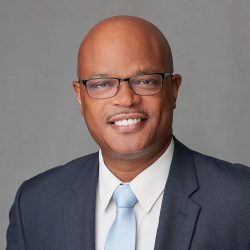
Derrick E. Robinson
Assistant Professor
drbnsn28@memphis.edu
University of Memphis | Educational Leadership
Derrick Robinson, Ph.D. is an Assistant Professor of Educational Leadership and Policy Studies at the University of Memphis. Prior to his assignment at the University of Memphis, Dr. Robinson served two years as an Assistant Professor of Educational Leadership at the University of South Dakota. Dr. Robinson brings 22 years of public education experience in teaching and leadership. Dr. Robinson has 15 years of K-12 teaching in Social Studies and Business Education and 7 years of K-12 leadership experience in urban schools from Prince George’s County MD, Washington D.C., and Charlotte, NC.
Dr. Robinson’s research interests explore the contextual nature of school climate and culture, leadership effectiveness, and teacher effectiveness all in urban settings. Dr. Robinson studies the P-20 educational trajectory of urban students. His latest works examines Critical Care Leadership in urban schools, identity development of Black junior faculty, and Leader Mindfulness in public school administrators. Recent evolutions of Dr. Robinson’s research interests explore how educational leaders can enact resiliency, cultural responsiveness, and academic optimism to impact instructional experiences of students from pre-school to the doctoral program. As such, teacher effectiveness and identity development from public and higher education has become a focus of Dr. Robinson. Dr. Robinson also explores leader mindfulness, wellness, and care as an aspect of leader effectiveness practices.
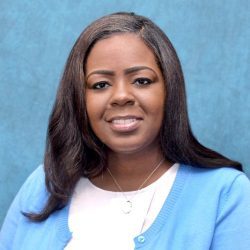
Tonya J. Rose
Assistant Professor
Tonya_Rose@subr.edu
Southern University and A&M College | Curriculum and Instruction
Tonya Rose is an Assistant Professor in the Department of Curriculum and Instruction in the School of Education at Southern University and A&M College in Baton Rouge, LA. She is the Science, Mathematics, and Technology content specialist for the undergraduate and graduate teacher preparation programs, the CAEP Coordinator for national accreditation and the TPI Liaison for state approval.
Dr. Rose earned her doctorate in Science and Mathematics Education from Southern University and A&M College. Her research focused on the Effects of Informal Science Learning on Middle
School Students’ Science Attitudes.
As a consultant, Dr. Rose has worked with SHEEO’s Project Pipeline Repair program, that aims to increase the number of African American males entering the teaching profession and various
Praxis Preparation programs for aspiring teachers. She also facilitates workshops on how to utilize technology effectively in the classroom and track student growth.

Spencer Salas
Professor
ssalas@charlotte.edu
UNC Charlotte | College of Education
Spencer Salas, Ph.D., is a Professor in the Department of Middle, Secondary, and K-12 Education at The University of North Carolina at Charlotte where he is TESL strand coordinator for the Ph.D. in Curriculum and Instruction. Among the courses he teaches are Globalization, Communities, and Schools; and, Teacher Leadership. An award-winning District of Columbia Public School ESL teacher, he has been a Fulbright Fellow to Romania (1998), Guatemala (2007), and South Africa (2013); a Senior English Language Fellow for the U.S. Department of State to Peru (2001-2003); and a frequent English Language Specialist for the Office of English Language Programs. His empirical and theoretical scholarship focuses on teachers’ negotiation of New South contexts and the implications of Latino immigration for educational policy and praxis. His writing has appeared in venues such as TESOL Journal, Bilingual Research Journal, The Journal of Curriculum Theorizing, The Peabody Journal of Education, and, The Journal of Basic Writing. In 2004, he was named a Scholar for the Dream by the Conference for College Composition and Communication; in 2008, a National Council of Teachers of English New Voice among Scholars of Color; and, in 2009, an Early Career Fellow with the University of Georgia’s Center for Latino Achievement and Success in Education. He is co-editor of Vygotsky in 21st century society (Peter Lang, 2011); U.S. Latinos and education policy (Routledge/Taylor & Francis, 2014); Latinization of K-12 communities (SUNY Press, under contract for 2017); and, Volume 15 TESOL Encyclopedia of English Language Teaching, Administrative and Organizational Issues (TESOL Inc/Wiley International (under contract for 2017).
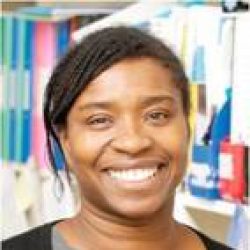
Victoria Showunmi
Associate Professor
V.Showunmi@ioe.ac.uk
UCL Institute of Education, UK | IOE – Education, Practice & Society
Faculty Website
Dr. Showunmi is an Associate Professor in Education at UCL Institute of Education, UK. She focuses on 1) Gender and Educational leadership and 2) Black young women and their well being through an intersectional lens. She is currently leading an educational leadership partnership with colleagues on projects that are based in Pakistan, Germany and the USA .
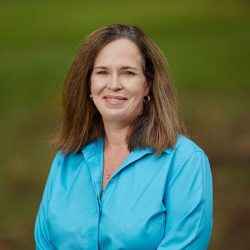
Tracy Spies
Associate Professor
tracy.spies@unlv.edu
University of Nevada, Las Vegas | Early Childhood, Multilingual, and Special Education
Appointed associate professor with the Educational & Clinical Studies department, Tracy Spies is fluent in Spanish and will be engaged with Teaching English as a Second Language. With a master’s degree in Educational Leadership from Sam Houston State University and a doctorate degree in Hispanic Bilingual Education from Texas A&M, Dr. Spies has fifteen years experience as a teacher and principal. In 2010, she received the National Milken Educator Award as one out of fifty-five educators in the nation. She has secured more than $3 million in grants. Tracy has been very involved in community service working in the areas of hunger and TESL. Her research agenda includes the following: second language acquisition, the effects of the second language on the native language, effective teacher pedagogy with ELLs in native and second language, and dispositions of school leaders identified as successful with ELLs.
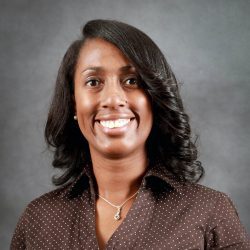
Stephanie Thomas
Assistant Professor
Stephanie.thomas@lr.edu
| Lenoir-Rhyne University
Stephanie Thomas joined the faculty at Lenoir-Rhyne University in 2021. She is an assistant professor and teaches courses in education. In addition, she serves as the coordinator for the Master of Arts in Teaching program. As a writer, scholar and educator, Thomas has more than 15 years of experience in educating, coaching and training teachers.
Her research has been featured in top journals such as the Journal of Negro Education, the Journal of Multicultural Education and the Journal of African American Males in Education. She has also co-authored several book chapters and books, including Political, Legislative and Economic Solutions to Urban Education and the Implications on Teacher Preparation, released in fall 2021.
Thomas currently resides in Charlotte, North Carolina, where she enjoys time with her family.
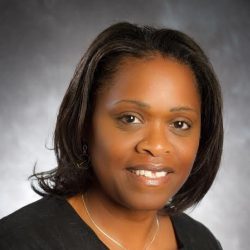
Andrea L. Tyler
Director
atyler2@tnstate.edu
Tennessee State University | Graduate Student Services
Andrea L. Tyler, Ph. D is currently the Director of Graduate Students services and a Research Associate at Tennessee State University. She is also the Director of the POTUS Fellows Program that supports African American STEM graduate students in an attempt to address the global need to increase African American representation in the STEM disciplines. Andrea earned her doctoral degree in Educational Leadership from the Miami University of Ohio. Andrea also holds degrees in Curriculum and Instruction and Mechanical Engineering.
Andrea’s research focuses on the higher education experiences of African American graduate students and faculty. More specifically, her research explores graduate student achievement, outcome, and career choice in STEM; graduate and faculty mentoring, socialization, and identity constructs; and African American females in STEM.
These interests have led Andrea to conduct research and write grants on a variety of topics such as academic preparation and retention in STEM fields, the influence of mentoring relationships on student outcomes, the experiences and motivational patterns of high achieving students of color, Black single motherhood, and higher education access for STEM students of color.
Prior to completing her doctoral work at Miami University of Ohio, Andrea worked as a Mechanical Engineer for companies such NASA, Honeywell, and ServiceMaster and as a K-12 central office administrator for a large Mid-West urban school district.
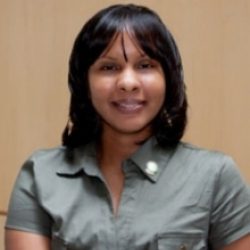
Bettie Butler
Professor
bettie.butler@charlotte.edu
UNC Charlotte | College of Education
Dr. Bettie Ray Butler is a Professor of Urban Education and the Director of the Student Discipline Joint Task Force at UNC Charlotte. She also serves as the Program Director of the Master’s of Education (M.Ed.) in Urban Education. She currently teaches both core and specialized courses in the Curriculum and Instruction Ph.D. program. She has also taught undergraduate and master’s level courses that center on diversity in education and teacher preparation. Dr. Butler’s existing publication record consists of several referred journal articles, book chapters, and policy reports that center on critical issues in urban education. Broadly, her research investigates issues of equity, representation, and social justice in education. Her specialized area of interests are school discipline and culturally responsive classroom management. Her current work utilizes a restorative framework to assess racial and gender disproportionality in school punishment and identify and develop alternatives to student suspension.
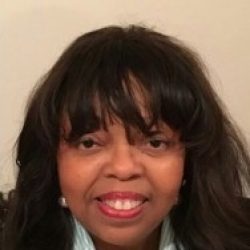
Gloria Campbell-Whatley
Professor
gcampbe1@charlotte.edu
UNC Charlotte | College of Education
Gloria Campbell-Whatley is an Professor in the Department of Special Education and Child Development. She is a nationally recognized as an inclusion specialist, consultant, trainer, and keynote speaker. Related to inclusion, she has developed 14 modules/training manuals and written five applied research reports. She has also delivered and produced 51 keynote addresses, strands, workshops, and television presentations, as well as 60+ international, national, regional, state and local presentations across the United States and abroad (Spain, Africa, Brazil, China, and Australia). Scholarly leadership pursuits include 66 published book chapters and articles, 15 modules and training manuals, 6 applied research reports 4 books, 2 recent ones are Leadership Practices for Special and General Educators (2013-Pearson Education) and A School Leader’s Guide to Implementing the Common Core: Inclusive Practices for All Students (2016- Routledge/Taylor Francis). Recently she served as a Faculty Fellow for Inclusion for General Administration in The University of North Carolina system (2015-2017). She worked system wide (17 universities), with both Traditionally White and Historically Black universities, and measured climate, convened focus groups and administered surveys. In fact, the curriculum methodology was cited and published in INSIGHTS for Diversity as innovative. Presently, in the College of Education, as an active member and acting chair of the Diversity Committee, she conducted a Diversity Audit.
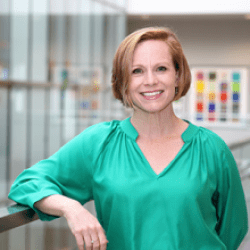
Heather Coffey
Professor
hcoffey@charlotte.edu
UNC Charlotte | College of Education
Dr. Heather Coffey is a Professor in the Department of Middle, Secondary and K-12 Education and serves as the Director of the UNC Charlotte Writing Project. Dr. Coffey’s primary teaching responsibilities include graduate English language arts methods as well as service-learning courses. Her research interests include ways to develop critical literacy with urban learners, bridging the gap between educational theory and practice in teacher education, and supporting in-service teachers in urban school settings through professional development. Dr. Coffey’s record of publication includes book chapters and articles in refereed practitioner and research journals. She is currently investigating the ways in which urban learners can develop agency through research and writing and work for social justice in their communities.
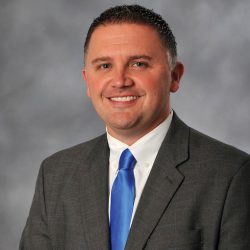
James Davis
Associate Professor
jdavis9@coastal.edu
Coastal Carolina University | Educational Leadership
Dr. James Davis is an associate professor and program coordinator in educational leadership. Prior to his positions at the university level, Dr. Davis, a former “Principal of the Year” and “Teacher of the Year,” served as a school turnaround principal with various school systems in North Carolina. Dr. Davis spent the last 20 years in education as a professor and serving at the school and district-level.
Dr. Davis received his Doctorate from the University of North Carolina at Charlotte in Curriculum and Instruction with a focus on Urban Education. After acceptance into the North Carolina Principal Fellow’s Program, Dr. Davis earned a Master’s Degree in School Administration. He also earned a Master’s Degree in Middle, Secondary, and K-12 Education. Dr. Davis has a Bachelor’s Degree in Middle Grades Education with concentrations in English Language Arts and Social Studies. He is certified as a teacher, school administrator, Curriculum Specialist, Exceptional Children’s Director, and Superintendent.
Dr. James Davis has research interests that include school transformation, teacher effectiveness, teacher leadership, principal support, and serving at-risk populations. He has been published at both the state, national, and international level. The most recent publications include articles with the National Association for Alternative Certification (JNAAC), the Association of Middle Level Education, the National Association of Elementary School Principals, the National Middle School Association, Principal Leadership, and Eye on Education.
Dr. Davis has presented at the international, national, and state level. He has had presentation proposals accepted with AMLE, the Urban Education Collaborative, the North Carolina Association of School Administrators, the North Carolina Association of Elementary Educators, the Southeastern Association of Educational Studies, the National Forum on Dropout Prevention for Native and Tribal Communities, the North Carolina Association of Middle Level Education, and the North Carolina Association for Supervision and Curriculum Development.
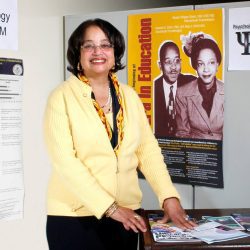
Ruth Greene
OHerron Distinguished Professor of Psychology
704-378-1052
rgreene@jcsu.edu
Johnson C. Smith University | Psychology
Dr. Ruth Greene is the OHerron Distinguished Professor of Psychology at Johnson C. Smith University in Charlotte, North Carolina. She received her doctorate degree from the University of Massachusetts and has been a postdoctoral researcher at the Center for Aging and Human Development at Duke University Medical Center and the Institute for Social Research at the University of Michigan.
Her research and professional interests have been broad based and include minority issues in the area of urban education, minority aging, cultural competency, diversity training and adolescent development and health. She has served as Assistant Dean of Studies at Mt Holyoke College, Chair of the Education and Psychology Department at Fayetteville State University and Interim Vice President for Academic Affairs, and the Robert L. Albright Honors College at Johnson C. Smith University. She also served as an Extramural Associate with the National Institutes of Health and faculty researcher for the Department of Defense.
Dr. Greene has served on numerous boards that include the Executive Committee, Ford Foundation, Charlotte Mecklenburg School Reform Initiative, Co Chair, Research Committee of the National Collegiate Honors Council, Charlotte, the Larry King Center, Council on Children, the Carolinas Association for Community Health Equity, the Executive Board, American Red Cross, Greater Carolinas Chapter, the Governor’s Planning Committee on the Concerns of Older Women in North Carolina, the Executive Board of the Human Services Council for Charlotte Mecklenburg, the Charlotte Mecklenburg Mental Health Board, the North Carolina Cultural Competence Initiative Advisory Committee, the Executive Board, of the Council on Aging for Mecklenburg and Union Counties, the Education Committee of Division 20, Adult Development and Aging, American Psychological Association.
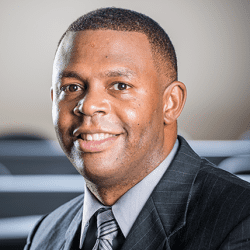
Esrom Pitre
Principal
esromdpitre@gmail.com
|
Dr. Esrom Pitre is currently the principal at McKinley Senior High School in Baton Rouge, Louisiana. Under his leadership as principal, McKinley High has improved from a D to a C school on the Louisiana School Performance Index in his first year as principal. Additionally, Dr. Pitre has led McKinley to the largest growth in East Baton Rouge Parish for High Schools and ranked third among fifty-five high schools in the Baton Rouge area for school growth.
In addition, Dr. Esrom Pitre successfully took on the challenge of transforming a low-performing/high poverty Louisiana high school into a model of academic change and success in Ascension Parish. After years of low performance, Donaldsonville High School was rated an F school for eight consecutive years, the school had been placed on the academic watch list and was on the verge of being taken over by the state. The graduation rate at the school was 67% and the school culture was one where the students weren’t motivated to learn and showed no respect to teachers and teachers encountered discipline and attendance problems. Within 4 years, Dr. Pitre and his staff improved the graduation rate from 67% to 89%. Additionally, the school grew over twenty points in two consecutive years (one year with 7th & 8th graders, next year with high school students). He was selected as the Ascension Parish School System High School Principal of the Year in 2010. Dr. Pitre has also served as an Associate Professor at Southern University and Assistant Professor at the following Universities: Xavier University, University of Houston Clear Lake, Louisiana State University Shreveport and Metropolitan State University of Denver. Dr. Esrom Pitre’s research focuses on the overrepresentation of African American males in special education, culturally responsive leadership, and transformative leadership in low performing schools. Furthermore, he is the co-author of books entitled, The Struggle for Black History: Foundation for Critical Black Pedagogy and Educating African American Students: Foundation, Curriculum and Experiences. Dr. Esrom Pitre is also the author of a book entitled, Locked In: The Educational Experiences of African American Males in Special Education.
Esrom Pitre has done more than just teach the principles of educational leadership; he has actually practiced them. Prior to joining the UHCL faculty in fall 2013, Pitre successfully took on the challenge of transforming a low-performing/high poverty Louisiana high school into a model of academic change and success. After years of low performance, Donaldsonville High School rated an F school for eight consecutive years, the school had been placed on the academic watch list and was on the verge of being taken over by the state. The graduation rate at the school was a low 67 percent and that the school culture was one where the students weren’t motivated to learn and showed no respect to teachers, with teachers encountering discipline and attendance problems. Dr. Pitre explored the following three research strands: (1) the impact of culturally responsive leadership on improving marginalized students’ achievement, (2) the impact of law and policy on student development and achievement in urban schools, and (3) what role does community engagement play in sustaining school improvement in urban school.
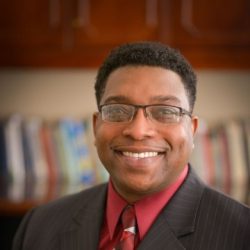
Malcolm E. Scott
Assistant Professor and MSSW Program Director
Malcolm.scott@acu.edu
Abilene Christian University | School of Social Work
Malcolm E. Scott is MSSW Program Director and Assistant Professor in the School of Social Work at Abilene Christian University in Abilene, Texas. Dr. Scott attended Southern University and Agricultural and Mechanical College, in Baton Rouge, where earned his Bachelor of Science Degree in Social Work (1999). Dr. Scott earned graduate the Master of Science degree in Social Work (2001) and a Doctor of Philosophy in Education and Human Resource Studies from Colorado State University (2005). Dr. Scott’s research interests focus on youth and community development, urban education and community-engaged scholarship, issues facing vulnerable populations, and higher education access and opportunities for historically underrepresented students. Diversity, equity, and inclusion are at the center of his scholarship and community academic partnership (CAPs) efforts to address disproportional school discipline practices, food security, and adult reentry programs and services.
Dr. Scott infuses diversity into his teaching and helps students understand human growth and development from a perspective that appreciates the influence of culture, age, sexual orientation, religion, and the multitude of factors that influence a truly multi-cultural society.
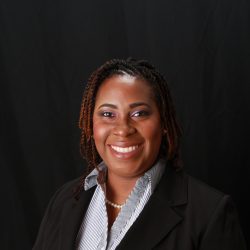
Tehia Starker Glass
Professor
tstarker@charlotte.edu
UNC Charlotte | College of Education
Dr. Tehia Starker Glass is a Professor of Elementary Education and Educational Psychology in the Department of Reading and Elementary Education at the University of North Carolina at Charlotte. She is the first black woman to earn tenure in the College of Education at UNC Charlotte. Dr. Starker Glass earned degrees from Bethune-Cookman University (B.S. Elementary Education), the University of Northern Iowa (M.A. Educational Technology), and University of Nebraska-Lincoln (Ph.D. Educational Psychology). Dr. Starker Glass’ teaching background spans K-12 through higher education. She has taught in Japan, Italy, Hawaii, New York, Florida, and Tennessee. The majority of her teaching experiences have been in urban and/or title one elementary schools while in the states. Dr. Starker Glass’ research interests include preparing preservice and inservice teachers’ culturally responsive teaching self-efficacy, examining motivational factors that influence teachers’ behavior towards culturally diverse students, culturally responsive classroom management, investigating the role of Historically Black Colleges and Universities (HBCU’s) and teacher education, and instructional design.